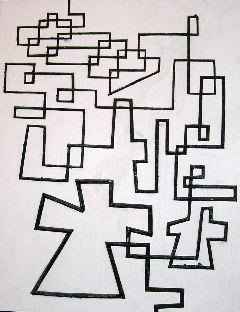108. Reasons For Poetry by William Meredith
Exerpt from: Poems Are Hard To Read, Reasons for Poetry by William Meredith
. . . . Perhaps the most useful definition, in fact, would begin with a statement about expectation: the expectation with which a reader engages a poem, and the reasons for which a poet may have undertaken the poem, and the possible discrepancy between these two. We have all had the experience of fighting a work of art because it was not doing what we were asking of it. John Ashbery said in an interview: "My feeling is that a poem that communicates something that's already known to the reader is not really communicating anything to him and in fact shows a lack of respect for him." Since what is communicated in a work of art is also how it is communicated, a false expectation is almost certain to produce a false reading. And often we confirm this by the happy surprise that comes when a work we had been defeated by suddenly opens itself to us--we find that it performs very well the job of work which was its reason, once we stop asking it to perform some other service which was no part of its intention.
A word here about liking a poem. This should of course be our primary objective and motive. But to like is a function of the critical intelligence, as this passage by W. H. Auden makes clear:
As readers, we remain in the nursery stage as long as we cannot distinguish between taste and judgment, so long, that is, as the only possible verdicts we can pass on a book are two: this I like, this I don't like.
He goes on with the lovely, schoolmasterly, and abashing accuracy of an Audenism:
For an adult reader, the possible verdicts are five:
I can see this is good and I like it;
I can see this is good but I don't like it;
I can see this is good and, though at present I don't like it, I believe that with perseverance I shall come to like it;
I can see this is trash but I like it;
I can see this is trash and I don't like it.
My argument is that we should use the third option as often as possible, when the first response is not spontaneous with us. When we can't say of a poem, especially of a poem that comes recommended, I can see this is good and I like it, we owe it to ourselves and the poem to try to say, I can see this is good, and though at present I don't like it, I believe that with perseverance, et cetera.
Poems seem to come into being for various and distinct reasons. These vary from poem to poem and from poet to poet. The reason for a poem is apt to be one of the revelations attendant on its making. No surprise for the writer, no surprise for the reader, Frost said. The reason for a new poem is, in some essential, a new reason. This is why poets, in the large Greek sense of makers, are crucial to a culture. They respond newly, but in the familiar tribal experience of language, to what new thing befalls the tribe. I shall have some comments to make here about three generic reasons for which poems seem to come into being, but even within these genera, the occasion of a poem is always a new thing under the sun. . . . .
From Poems are Hard to Read by William Meredith, published by the University of Michigan Press, pages 39-56. Copyright © 1990 by William Meredith. Reprinted by permission of the University of Michigan Press. All rights reserved.

